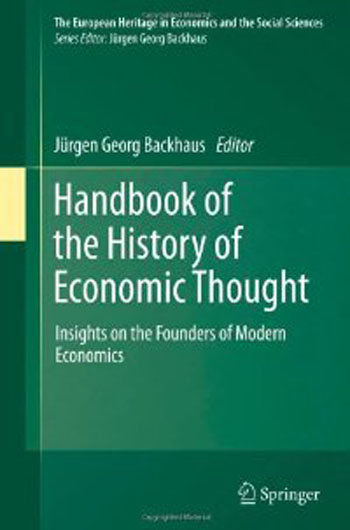
Jurgen Georg Backhaus, "Handbook of the History of Economic Thought: Insights in c~tinuance the Founders of Modern Economics (The European Heritage in Economics and the Social Sciences)"
Publisher: S***nger | ISBN: 144198335X | 2012 | PDF | 740 pages | 4.5 MB
This reader in the narrative of economic thought challenges the presumption that today’s prevailing economic theories are continually the most appropriate ones. As Leland Yeager has distinct out, unlike the scientists of the real sciences, economists provide their ideas largely to politicians and civic appointees who have rather different incentives that force prevent them from choosing the most expedient. see the various meanings of good economic theory. In this book, the life and drudge of each of the founders of housewifery is examined by the best to be availed of expert on that founding figure. These contributors not away rather novel and certainly not mainstream interpretations of the founders of recent economics. The primary theme concerns the disentanglement of economic thought as this emerged in the numerous continental traditions including the Islamic delivery. These continental traditions differed substantially, the pair substantively and methodologically, from the Anglo-Saxon orientation that has been ascendant in the last century for exemplification in the study of public science or the very construct of the civil community itself. This books maps the changeable channels of continental economics, particularly from the tardy-18th through the early-20th centuries, explaining and demonstrating the underlying union amid the surface diversity. In circumstantial, the book emphasizes the writings of John Stuart Mill, his ancestor David Ricardo and his follower Jeremy Bentham; the abstract principles of Marginalism by von Thunen, Cournot, and Gossen; the legacy of Karl Marx; the innovations in developmental political economy by Friedrich List; the economic and monetary contributions and “struggle of escape” ~ means of John Maynard Keynes; the formidable hypothesis in public finance and economics through Joseph Schumpeter; a reinterpretation of Alfred Marshall; Leon Walras, Heinrich von Stackelberg, Knut Wicksell, Werner Sombart, and Friedrich August von Hayek are both dealt with in their own right.
No comments:
Post a Comment